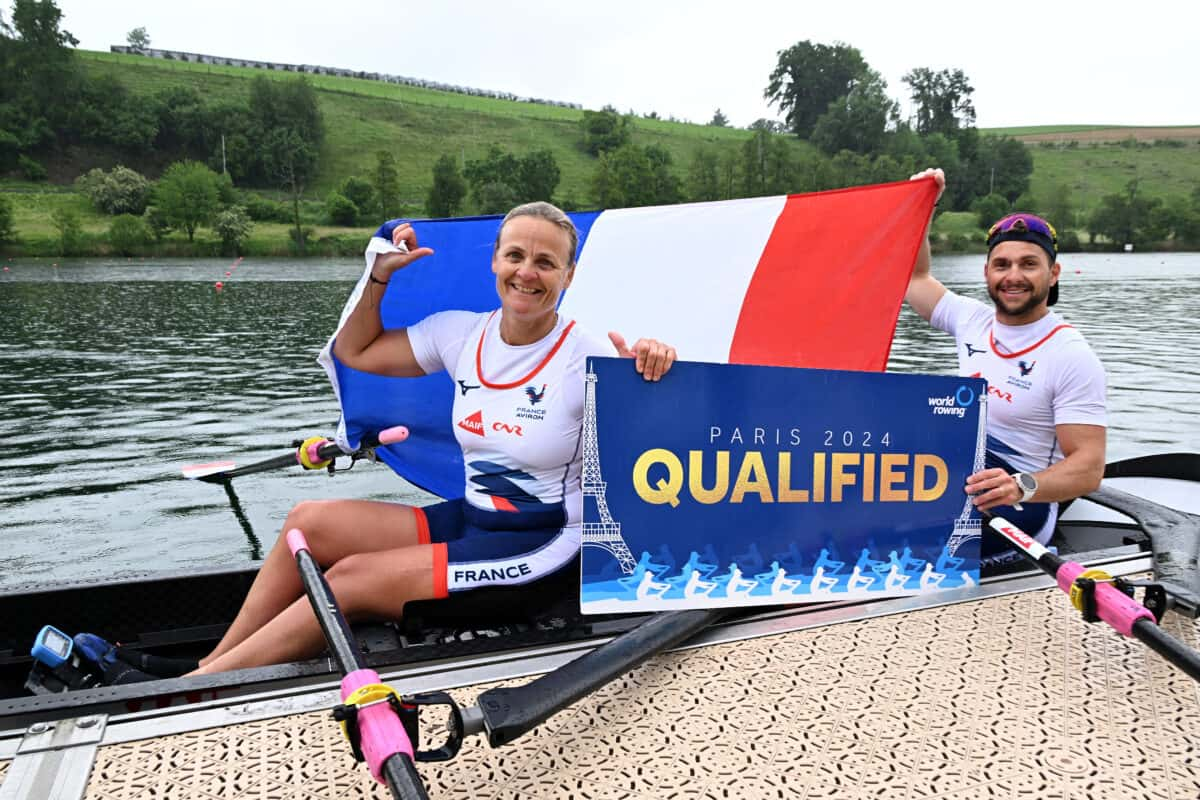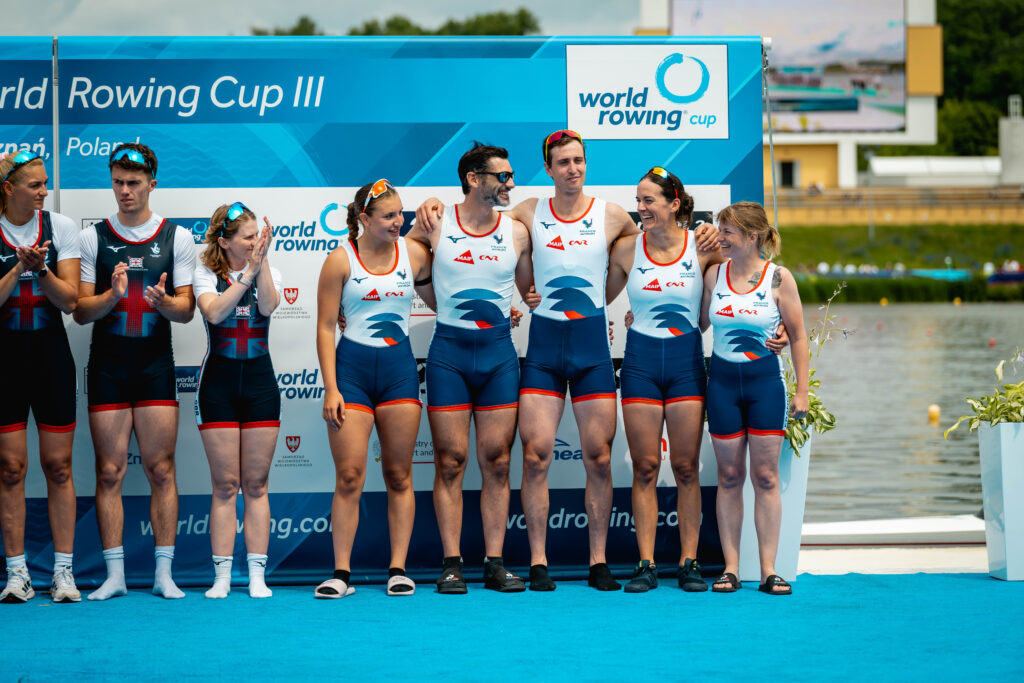
26 Aug 2024
Eyes on the prize for France’s para-rowers
Paris 2024 will be the first time five boat classes have been contended at a Paralympic Games, with the PR3 mixed double sculls making its debut at the Stade Nautique de Vaires-sur-Marne in late August.
And the only nation to be racing a boat in all five events is, appropriately, France. After qualifying three boats at the 2023 World Rowing Championships, the Paralympic hosts added the PR1 men’s single sculls and PR2 mixed double sculls at the Final Olympic and Paralympic Qualification Regatta in May.
“It’s fantastic for our home Games. The main aim is to get two or three medals, and that’s easier with a full team,” says Charles Delval, who leads the French para-rowing team.
“We’re particularly happy that it justifies all the hard team work which we’ve been doing for a few years – lots of effort in identifying talent, classification and finding new athletes – and it brings a new dynamic for the team in general,” Delval says.
France has qualified boats for every edition of the Paralympic Games featuring rowing – Beijing 2008, London 2012, Rio 2016 and Tokyo 2020 – and has won two silver and three bronze medals to date. But stepping up to qualify every boat, and with a genuine medal aim in several of them, has required time and effort.
“Since Tokyo we have more resources – financial and people, particularly on the management side, with an extra coach,” explains Delval.
“I’ve stopped coaching a boat in order to focus more on team management, and also to focus a bit more on identification. That means looking for athletes either in other federations, or through the identification pathways that the federation and the Paralympic committee run. There’s also a lot of focus on communicating the types of athletes we’re looking for, working with clubs that are launching themselves into development.
“My mission is high performance, but we can’t do that without development. They’re completely linked. We do development and high-performance in the same weeks, sometimes on the same training camps. Sometimes new athletes can come and row with the Paralympic athletes.”
The French federation is constantly on the hunt for new para-rowers, giving prospective talents a three-month trial. If, at the end of those three months, coaches do not see the potential in the rower, they are encouraged to go and find another sport. If there is potential to achieve at a high level, Delval and his team will help the athlete find a club and a boat and push them onwards.
A new member of the team this year is five-time Paralympic Winter Games champion Benjamin Daviet. Good coordination with Daviet’s skiing coach was essential, but the gamble paid off with Paris qualification in Lucerne.
“We also want to show that it’s possible to do winter and summer Games. Why switch disciplines?” Delval points out.

Working well with others is the other secret to the French success story. Delval has cultivated a strong relationship with British coach Tom Dyson and his team. Britain is the most successful nation in the history of Paralympic rowing when it comes to medals, and the two teams have spent time on joint training camps in Italy and France.
But France has one up on their rivals for Paris.
“We’ve managed to qualify five boats, but they’ve not managed that, they don’t have a female single sculler,” Delval points out. “I’m sure they’re looking for one, that they’re trying.”
He believes that it is essential to be proactive about finding new para-rowers, rather than waiting for people to appear, but adds that the French federation has been good at providing the resources to go and hunt people down and attract them to the sport. The French para-rowers are also more and more integrated with their Olympic counterparts, with a recent training camp integrating the two squads proving successful.
Delval says one of the attractions for para-rowers is the liberty they find on the water and the way they are treated – as elite athletes.
“What we say is voilà, you get in the boat, the wheelchair stays on the pontoon, the athlete heads on to the water, and they’re no longer disabled,” he says. “Once they’re on the water they must train as rowers, not para-rowers. They’re true athletes.”
He is hopeful that having a full team in Paris will just grow the profile of para-rowing in the eyes of the French public, but Delval’s eyes remain solidly on the prize.
“We’re envisaging two or three medals,” he reiterates. “If we get fifth or fourth place, I’ll have failed. It’s great to qualify everyone, but in the end the aim is the medals.”

